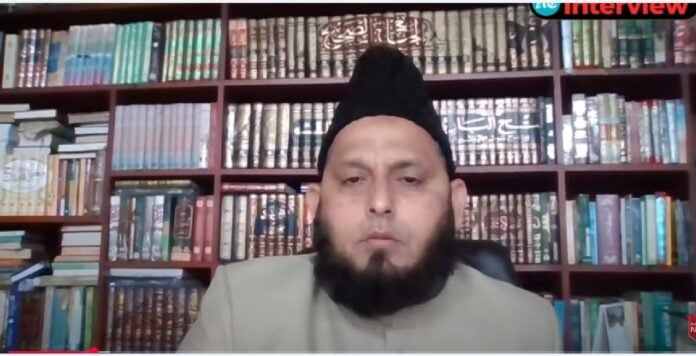By Kumkum Chadha
The much-awaited apex court judgment has had a mixed reaction: different sections, particularly the Muslims, are guarded, doing what it takes to camouflage their disappointment as hope, so to speak. Whether they expected less or more is difficult to say, but they perhaps take solace in the fact that this is an interim judgment and thus “hope is still alive” as Khalid Rasheed Farangi Mahli recently said in an exclusive interview to a national daily.
A cleric and descendant of the Farangi Mahal family, Mahli is an Islamic scholar and social reformer. Part of a distinguished lineage that has produced Islamic scholars for over 1,000 years, Mahli serves as Imam of the Lucknow Idgah.
He is the youngest executive member of All India Muslim Personal Law Board and propagates camaraderie and friendship between people of all faiths. This perhaps is the reason why when it came to protests against the recent Waqf law, he was for an approach that was more peaceful than aggressive.
“Majority of the people in the Board were of the view that large scale protests must be organized while some like me felt that the protests must be curtailed, but the Board left the decision to the respective states. In my own state of Uttar Pradesh, we organized protests, but did not take to the streets, but issued fatwas and speeches in our mosques and tied black bands as well as participated in the batti gul (lights off), protests, and the Board asked the community to perform special duas, prayers for the safety of Waqf properties,” Mahli said.
Without getting into technicalities, Mahli said that the Muslim community expected and had demanded that the entire Act should be scrapped. However, he does not see the verdict as a defeat: “We will wait for the final judgment. As of now, we have got 10 percent of the relief, but this is an interim and not a final order,” he said reiterating that Umeed par duniya kayam hai, the world lives on hope: “We have got 10 and hope to get the remaining 90 percent,” he says striking an optimistic note.
However, he does underline the problems that are likely to crop up as a consequence of this Act while conceding that there was scope for improvement in the functioning of Waqf Boards, though with an if and but, so to speak. “The answer or solution is not to revamp or destroy the soul of Waqf, but to rework it and bring about the desired and necessary changes in what has been in existence for decades, he said. He also agreed that there was mismanagement and corruption that existed in Waqf Boards, but there were enough provisions in the law to deal with these aspects.
As for the Muslim community, it is not satisfied with the apex court verdict given that the community expected much more. “The sentiment of the community is that this is an internal, religious and Islamic matter of Muslims and cannot and should not be tampered with. There were enough provisions in the 1995 Act to act against defaulters. So, the focus should have been to implement those provisions strongly and effectively rather than scrap the old and bring in a new Act,” said Mahli.
On whether there was a devious motive of the government in bringing in a new law to govern Waqf properties, Mahali was guarded. He said: “This can best be answered by the BJP government. All that I can say is that when you are bringing in a new law, the members of that particular community should be consulted and taken into confidence and their advice must be taken. This was given a go-by and the community was consulted after the Act was formulated. There are trusts formed for and in every community, but there is no interference in any of them except those concerning the Muslim community. It is this that has caused angst and created a suspicion that the properties under the Waqf and the religious rights of the Muslims are no longer safe anymore.
We feel that we would be bereft of our control on our mosques, madrasas and graveyards. To target these as the government is doing, compels us to conclude that the government will use the new Act to target the community.”
He further adding that there is a false perception that is created wilfully that if a Muslim puts his finger on any property it is deemed to be Waqf. “The truth is otherwise.”
Underlining the sanctity of Waqf, Mahli said that any attempt to misuse Waqf properties is unIslamic: enough deterrent for Muslims to do anything that goes against the tenets of Islam. Also a majority of Waqf properties are in the form of graveyards and dargahs. He said: “These are not revenue generating; on the contrary, there is expenditure that is incurred on their maintenance and upkeep.” He also refuted that Waqf properties amount to a huge pool of land: the third largest after the Army and the Railways own. Equally, he demanded that the government must make known the figures of endowment properties of other religious institutions too. “There is no use putting forward these figures and creating confusion because major properties are not income generating. Can one generate revenue from the dead?” he asks, reiterating that most Waqf properties are graveyards or mosques.
—The writer is an author, journalist and political commentator


